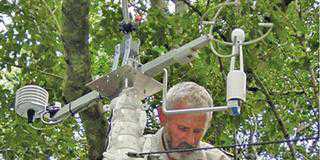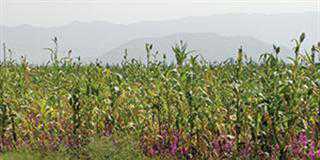The gene that controls the level of vitamin C (ascorbic acid) in fruit and vegetables has been identified by researchers in New Zealand. According to scientists at Plant & Food Research, the breakthrough offers the possibility that people will be able to get their daily dose of vitamin C from just one potato. Lead scientist William Laing explains that while vitamin C is essential for healthy cell function, we have to get it from our diet because our primate ancestors lost the ability to synthesise it.
The problem, however, is that we obtain most of it from plant sources and many of these are relatively low in vitamin C. “By understanding how vitamin C levels are controlled in plants, particularly in edible fruits or tubers, there is potential to develop new varieties of common crops with higher levels of natural vitamin C,” Laing says.
Researchers added a plant gene controlling GDP-galactose phosphorylase (GGP), an enzyme important in the production of vitamin C, to varieties of strawberry, potato and tomato. The results, published in the Plant Biotechnology Journal, showed that ascorbate levels could be increased by up to 500%.
“These experiments suggest that new plant varieties could be bred that produce enough naturally occurring vitamin C so that the recommended daily amount could be achieved by eating, for example, only one average-sized potato,” explains Laing.
“These new varieties would have the potential to reduce vitamin C deficiency in populations with reduced access to fruit and vegetables by allowing them to meet recommended levels through consumption of potatoes and other staple foods.”













